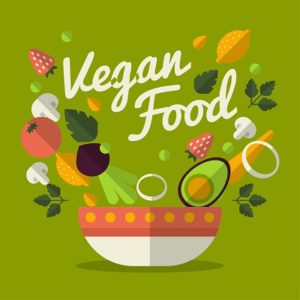 A vegetarian lifestyle is becoming more popular as research shows that vegetarians live longer and healthier lives. A vegan vegetarian is the strictest type of vegetarian diet and practiced by the minority of vegetarians. However, while it has the strictist diet regimen, it also reduces your potential for disease by the greatest amount. As with any anything else, the greatest effort often yeilds the most reward.
A vegetarian lifestyle is becoming more popular as research shows that vegetarians live longer and healthier lives. A vegan vegetarian is the strictest type of vegetarian diet and practiced by the minority of vegetarians. However, while it has the strictist diet regimen, it also reduces your potential for disease by the greatest amount. As with any anything else, the greatest effort often yeilds the most reward.
The vegetarian way of eating isn’t new. As far back as 400 B.C. vegan vegetarians were called Pythagoreans after the famous philosopher who believed that as long as people were committing murder, killing animals, they would not have joy and love in their lives.
Vegans were called Pythagoreans until 1847, when the term vegetarian was coined by Joseph Brotherton in Kent, England at the inaugural meeting of the Vegetarian Society of the United Kingdom. The word vegetarian is a derivation of the Latin word Vegetus meaning whole, sound or fresh.
The original Pythagoreans enjoyed a lifestyle that was with or without eggs, although most people included eggs in their diet. Today there are several types of vegetarians, vegans are only one.
The basic definition of vegetarianism is people who do not eat meat, poultry, fish or the by products of animals, with or without the use of dairy or eggs in the diet. Ovo-Lacto-Vegetarians eat eggs and milk products. This is the most popular type of vegetarian lifestyle.
Lacto-vegetarians eat milk products such as cheese, yogurt, milk and ice cream. They don’t eat eggs. Strict vegans eat no meat of any type, no dairy, no eggs and no meat by-products. They eat only fruit, vegetables, nuts and seeds.
Some vegans aren’t strictly dietary and also don’t use animal products in their clothing or household goods. Veganism is a way of living that attempts to exclude all forms of exploiting animals for food, clothing or other purposes.
Vegan diets use less energy and water resources than does the growth of livestock. Plant growth uses the energy and water resources while the livestock depletes the resources. Decrease plant growth also contributes to soil erosion, ground water depletion and deforestation.
Vegan diets have a positive impact on more than just your health and environment. Becoming a vegetarian is not as difficult as you might imagine. And once you’ve tried the vegan lifestyle, full of energy, good health and positive impact on your life, you’ll never go back!
RESOURCES
The Vegetarian Resource Group: Veganism in a Nutshell
Peta2: What is the difference between a vegetarian and vegan






